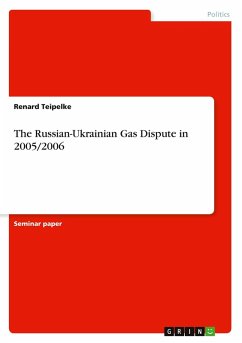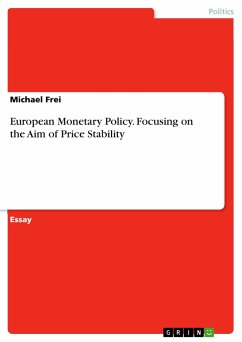
The German Government raises the Diesel Tax. An Ethical Discussion

PAYBACK Punkte
0 °P sammeln!
Submitted Assignment from the year 2020 in the subject Politics - Political Systems - Germany, grade: 2,0, Leuphana Universität Lüneburg, course: Ethik mit Schwerpunkt Nachhaltigkeit, language: English, abstract: In this essay, a price increase for diesel fuel by 5¿ per litre is discussed from an ethical point of view, linking it to sustainability considerations and investigating the case with references to different philosophical approaches, such as Immanuel Kant¿s categorical imperative, the utilitarianism founded by Jeremy Bentham, or John Rawls¿ concept of justice. The aim of this inv...
Submitted Assignment from the year 2020 in the subject Politics - Political Systems - Germany, grade: 2,0, Leuphana Universität Lüneburg, course: Ethik mit Schwerpunkt Nachhaltigkeit, language: English, abstract: In this essay, a price increase for diesel fuel by 5¿ per litre is discussed from an ethical point of view, linking it to sustainability considerations and investigating the case with references to different philosophical approaches, such as Immanuel Kant¿s categorical imperative, the utilitarianism founded by Jeremy Bentham, or John Rawls¿ concept of justice. The aim of this investigation is to find out whether the diesel tax represents a legitimate measure for the reduction of climate-damaging emissions or not. For this purpose, arguments both from a deontological as well as from a teleological perspective are introduced and weighed against each other. In the end, the essay arrives at the conclusion that while constituting indeed a meaningful action against climate change and for the improvement of air quality, the diesel tax nonetheless cannot be described as a just procedure according to the two principles of justice after Rawls and with reference to his concept of the veil of ignorance. In other words, the proposed measure is interpreted as an effective tool for sustainability purposes, but still not ethically justifiable due to the disproportionate discrimination in financial regards against the persons relying on the diesel technology. Therefore, other ways are suggested in order to reduce greenhouse gases and particulate matter emissions, resulting in less drastic consequences for particular actor groups and demanding fewer individual costs, but focusing more on a fundamental political transition process.












